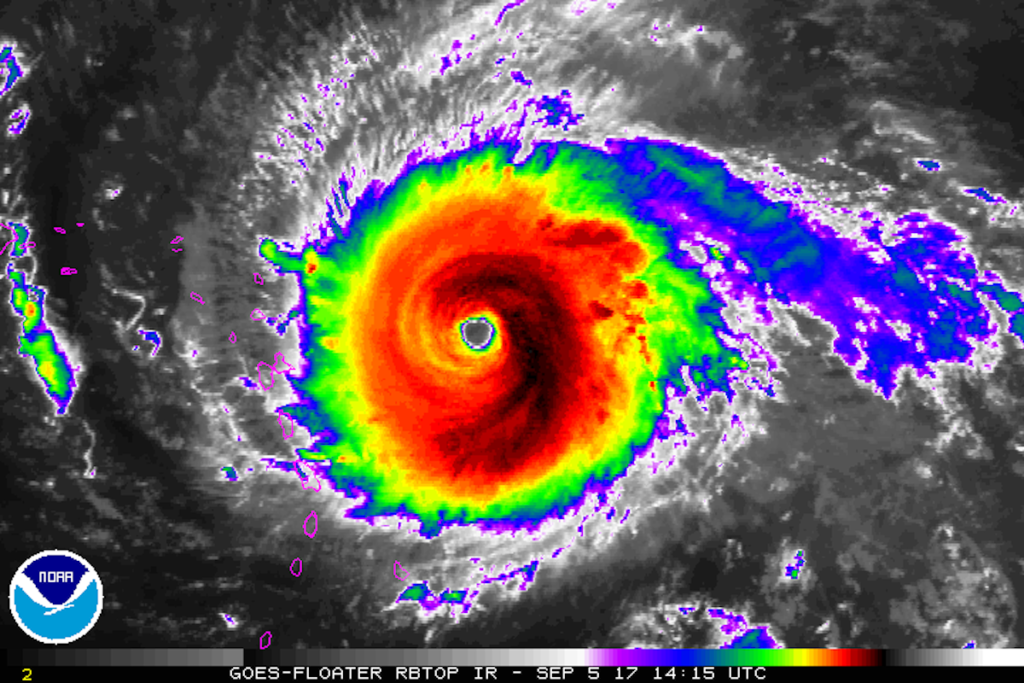
My dad taught me about emergency preparedness as well as how to keep score at a baseball game
As Hurricane Irma approaches Florida with an uncertain path, residents are doing their best to prepare for the storm.
For some, this means evacuating ahead of the high winds and potentially heavy rains. For others, this means joining the long lines at grocery stores and gas stations to stock up on water and fuel before the hurricane hits. Bradenton, Lakewood Ranch and Sarasota are all expected to feel the effects of the hurricane at some point this weekend.
My father was the king of preparedness. I used to say that he was an alarmist, but truthfully, he was smart. If there was a disaster, our family would be provided for, and we would be safe.
He lived in Ohio and would call me at the first mention of tropical weather. He would warn of the potential dangers, grill me on my plan of action and ALWAYS remind me I could come stay with my parents.
It was annoying at the time, as I felt that he didn’t appreciate that I had responsibilities and a mind of my own, but I know that he did it out of love. He died of cancer in June of 2016, and this is my first full hurricane season without the warnings and words of caring caution. I miss the advice, the nagging and the reassurance that no matter what, there was still a safe place for me and my family up north.
My dad taught me a lot, but in the wake of Irma’s strength and unpredictability, I feel like I have so very much left to learn. I am very sure that he would be disappointed in my supply of dehydrated food and lack of emergency flares.

I’ve gathered some pieces of wisdom that go beyond the “buy non-perishables” and “top off your gas tank” that you might already know.
Be prepared for a hurricane
- Get cash. Without electricity, you might not be able to access an ATM, and payment methods at various stores may be limited.
- Keep baby wipes next to each toilet. (To avoid the risk of clogging your toilet, don’t flush them.).
- Take a video of your house. Go room by room and document the contents. This will assist you in itemizing for insurance claims later if anything is damaged or stolen.
- To gauge the temperature of your freezer if the power goes out, take a cup of water and freeze it. Once frozen, place a coin on top. If the coin stays on top, the food is staying frozen. If the coin falls into the water, the freezer has thawed and most food will likely need to be thrown away. (This is extremely helpful if you are not aware of the exact point in time that your power returned – depending on when you check your freezer, it may appear everything is still frozen, but if the coin is in the cup, you will know that it thawed out at some point.)
- Have – and share – your emergency plan. Let others know where you’ll be ahead of time, whether you plan on staying in your home, going to a local shelter or evacuating the area entirely.
- Charge any device that provides light – this includes laptops, tablets, cameras, video cameras and old cell phones. Charge external battery backups.
- Fill old empty water bottles, plastic containers and bath tubs with water for use with flushing toilets and washing.
- Fill plastic bags with ice and fill your freezer with as many bags as possible.
- Stay well hydrated before the storm hits, and avoid salty foods that make you dehydrated.
- Assess your patio and lawn décor – bring any furniture, plants, etc. indoors.
- Keep your most important documents accessible and protected. You can do this by taking photos of them and e-mailing them to yourself or uploading them to a secure, cloud-based storage system. You can also put important documents (car titles, insurance policies, birth certificates, etc.) in sealed plastic bags.
- Stock up on pet food and any medicine or supplies that your pets may require.
- Refill any medications and confirm that you have stock of basic first aid items.
- Gather all candles, flashlights, lighters, matches, batteries and other emergency items and keep them accessible and in a central location.
Things to keep in mind
If you have time before the storm hits, clean. Clean all counters and bathrooms. Wash your dishes. Empty your trash. Wash and dry all of your clothes and bedding. Mop your floors and vacuum. Shower. If you lose power, you’ll be living in the mess you started with, and smells will intensify in the heat, which will result from a lack of air conditioning. Use Clorox or Lysol wipes for cleaning when there is no power.
If you are evacuating your home, consider putting small valuable and/ or important items in a plastic bag or bin and placing it in your dishwasher. This will keep it dry and in an nontraditional location in your home.
For future hurricanes, prepare well before a danger is forecast. At the start of hurricane season, which is June 1-November 30, take stock of your emergency kit. Have a bug-out bag packed and ready. Buy bottled water and supplies like batteries, non-perishable food items and a NOAA weather radio. These types of supplies are in high demand right now in Florida, and stress is high to find the items before the storm hits.